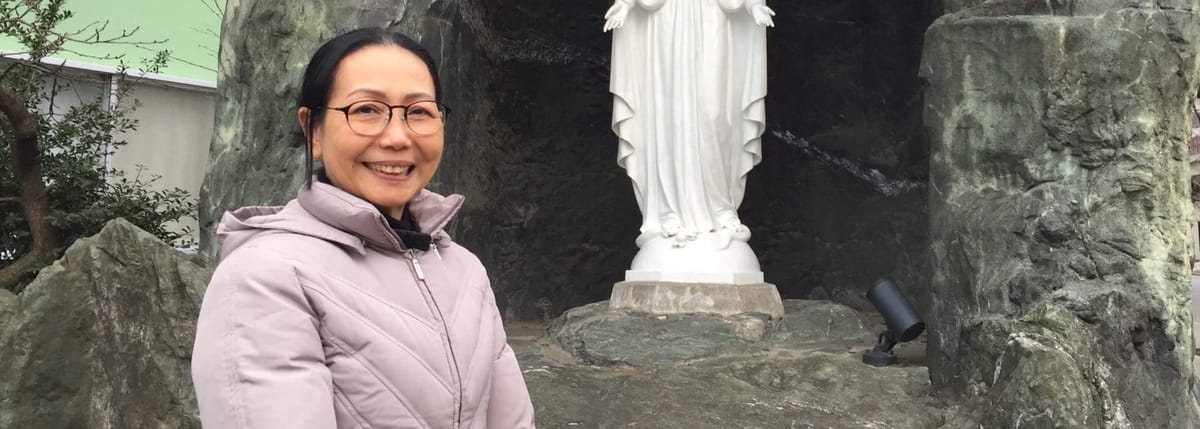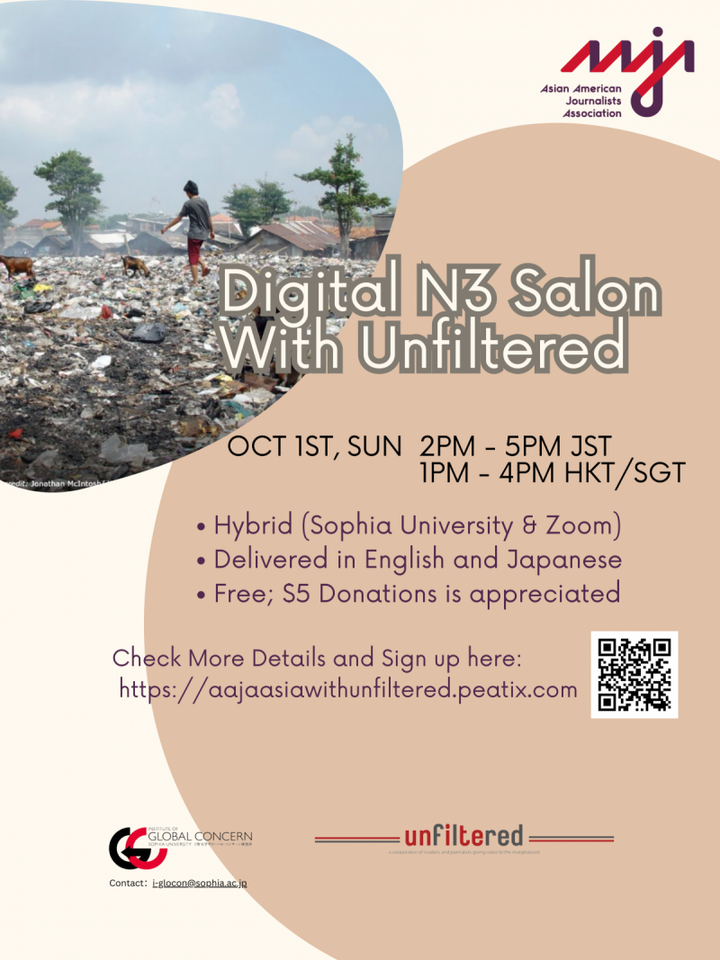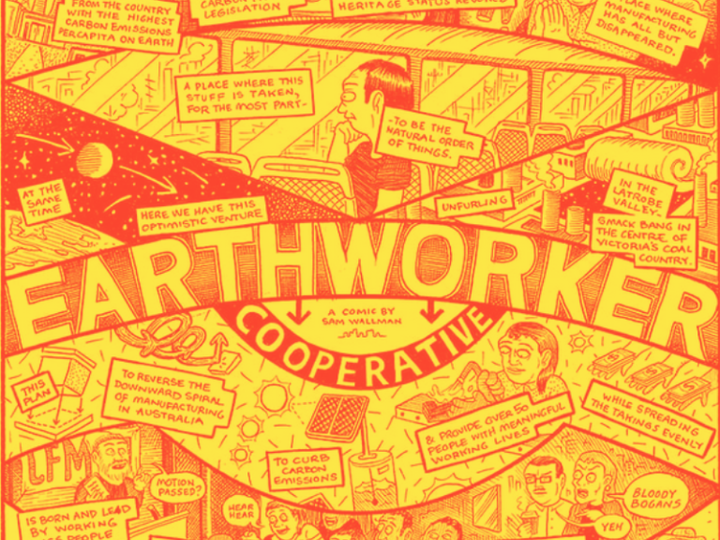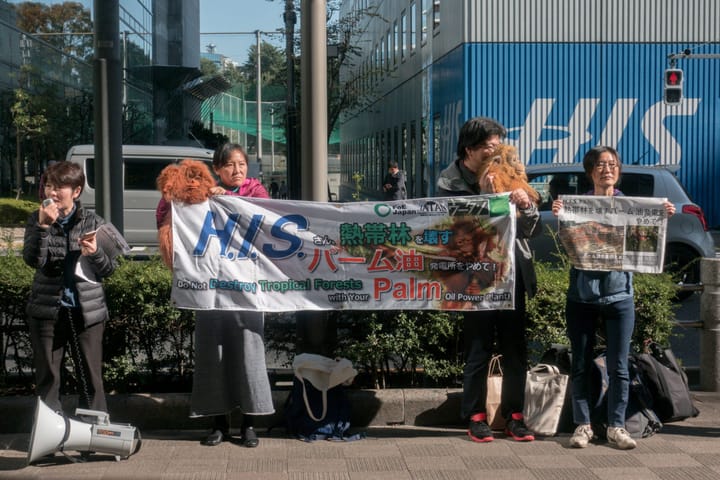On Being a Vietnamese Lifeline in Japan

Born in Vietnam, Takayama Yuki overcame her own struggles as a refugee in Japan and now spends her life helping others.
In a still largely homogenous country, Japan is home to about 412,000 Vietnamese, the third largest ethnic group behind Chinese and Koreans. About 2,316 Vietnamese were working as technical trainees at Japanese companies in March 2020. Many of them have run into problems at work.
Labor unions around the country have been inundated with inquiries from foreign trainees and exchange students, making interpreters like Yuki Takayama (59) indispensable. Takayama, a naturalized Japanese, was born in Vietnam, and fields messages in her native language via Facebook with the Zentoitsu Workers Union. Many have been abused by employers or colleagues.
‘At first, I was so nervous’
Takayama’s baptism of fire as an interpreter involved six Vietnamese trainees who had been told to stay home when there was no work. They were not getting paid.
“At first, I was so nervous,” she recalls. “I had no idea how to interpret.” A shouting match ensued with the trainees’ employers, but she won, thanks to the support of Shiro Sasaki, Zentoitsu Workers Union secretary-general, who said the union’s position was strong and there was “no need to hold back.”
Takayama had been working part-time in the kitchen of a Japanese restaurant for 20 years when she was asked by Masaichi Hikawa, a lawyer at Kawagoe Law Office and the Lawyers Network for Foreign Workers, to lend a hand to Vietnamese who had run into trouble with immigration authorities and the police.
Takayama eventually got involved with the Zentoitsu Workers Union, where she heard stories of trainees experiencing problems at work. Although she knew nothing about labor issues, word soon spread that she could provide emergency assistance to trainees and exchange students struggling to find work after graduation.
She got so busy dealing with hospitals, bureaucrats and police that she quit the part-time job and in 2017 she founded Snow International Human Resources Co. Ltd to provide services to Vietnamese, including job-hunting assistance for exchange students.
With so many people struggling to find work amid the pandemic, Takayama voluntarily responds to most Zentoitsu inquiries. She reaches out to the Vietnamese community online, lends portable Internet device via the Snow Wifi service, another company she established.
It’s a heavy commitment but Takayama’s explanation is simple. “These are people from my own country, so I can’t just sit back silently while my Japanese friends offer them assistance.”
Risking her life to flee her country
Takayama was born in 1962 in southern Vietnam as Luu Uyen. Her father died young. Her mother—a Catholic—had fled the communist North for the US-backed South when the political climate began to worsen. The communist administration had confiscated the family’s assets in the name of equality.
Takayama grew up during the Vietnam War and lost many friends and acquaintances.
“I once saw a bomb explode right in front of my eyes,” she recalls. There was nowhere to run. Losing the war to the communist North was “horrible,” she says. As a Christian, and with a son who had fought on the southern side, her mother was fearful of retribution from the new communist government so she put her three children on a migrant smuggling boat.
Takayama had heard horror stories of boats being intercepted and women and children kidnapped. There were cases of men being thrown into the sea. But for her mother’s sake, she set off with 60 other Vietnamese on a small fishing boat. At 20 years old, she left her beloved mother behind.
Drifting on the open seas for days, they shouted in vain for help to the many large and small vessels that passed by them. “We were pleading for help, so why was there no response?” Takayama recalls. “I’m sure there were political concerns at play, but shouldn’t saving lives have been a priority?”
Despairing, she asked her young brother, a strong swimmer, to dive off the board and ask for help. Finally, they were rescued by an Italian-registered ship and taken to the Omura Immigration Center, Nagasaki Prefecture.
Takayama was lucky. She arrived in 1982, just after Japan ratified the Convention Related to the Status of Refugees. Four decades later, the number of refugees recognized annually by Japan barely escapes double digits.
I cried all day, every day. It was an incredibly hard time
“I cried all day, every day. It was an incredibly hard time,” she recalls. “Truthfully, I wanted to go to the U.S. or Australia,” she says, although she notes in hindsight that coming to Japan during the bubble era was probably lucky. No one has ever asked me about how I got here.”
After leaving the immigration center, she went on to marry another refugee—and start a family. But she faced discrimination when trying to rent an apartment and do other simple tasks, so she and her husband decided to seek Japanese nationality. Even so, her eldest son—fearing bullying—asked her not to speak Vietnamese when she came to his school.
Offering a lifeline
After 37 years in Japan, work for the Zentoitsu Workers Union was a revelation, she says. “I have never met people with such warmth in their eyes.”
For many desperate Vietnamese, Takayama is the first person they encounter when they look for help. Four years into her job, Sasaki says she has remarkable skills. She advises people claiming abusive treatment to document the situation with photos and video. She quickly determines whether to pass queries onto the labor union, or help the person in question resolve the issue on their own.
During collective bargaining with management, the accuracy of interpretation depends upon Takayama’s knowledge of background details, and expertise related to technical terms.
As coronavirus infections spread, an increasing number of Vietnamese have found themselves contract-less and unable to return home. Immigration authorities recently granted them three-month stays and the right to work 28 hours per week, but some have no bank accounts or apartments.
Takayama has helped mediate some serious cases where trainees were forced to work under quasi-house arrest. Even worse, harassment and discrimination ended in violence, resulting in a trainee losing an eye.
Abuse and neglect is rife. In November 2020, for example, Nguyen Ngoc Trong, a 24-year-old technical trainee at a company in Chiba Prefecture, was found dead, emaciated and alone in his workplace dormitory. He appeared to have died of “pneumonia and cardiopulmonary arrest.” Despite his report that he was “severely ill,” his company only asked him if he was coming to work or going back to his home country, according to The Mainichi.
More than 170 technical trainees died in Japan between 2010 and 2018, according to media reports, due to accidents and illnesses.
Unfortunately, some do not make it back home, but those who return home after being mistreated by their supervising organizations and employers end up “hating Japan—but it is only the companies that are nasty,” Takayama notes. She then adds, smiling: “After they meet incredibly warm Japanese people like those at the Zentouitsu Workers Union, they are eager to come back again to Japan.”
Takayama is able to sometimes taste the freedom of movement herself, having secured the understanding of her husband—a kind man who sometimes helps her with difficult translations—and her other family members.
“This freedom,” she says, “is what I am most grateful for.”


